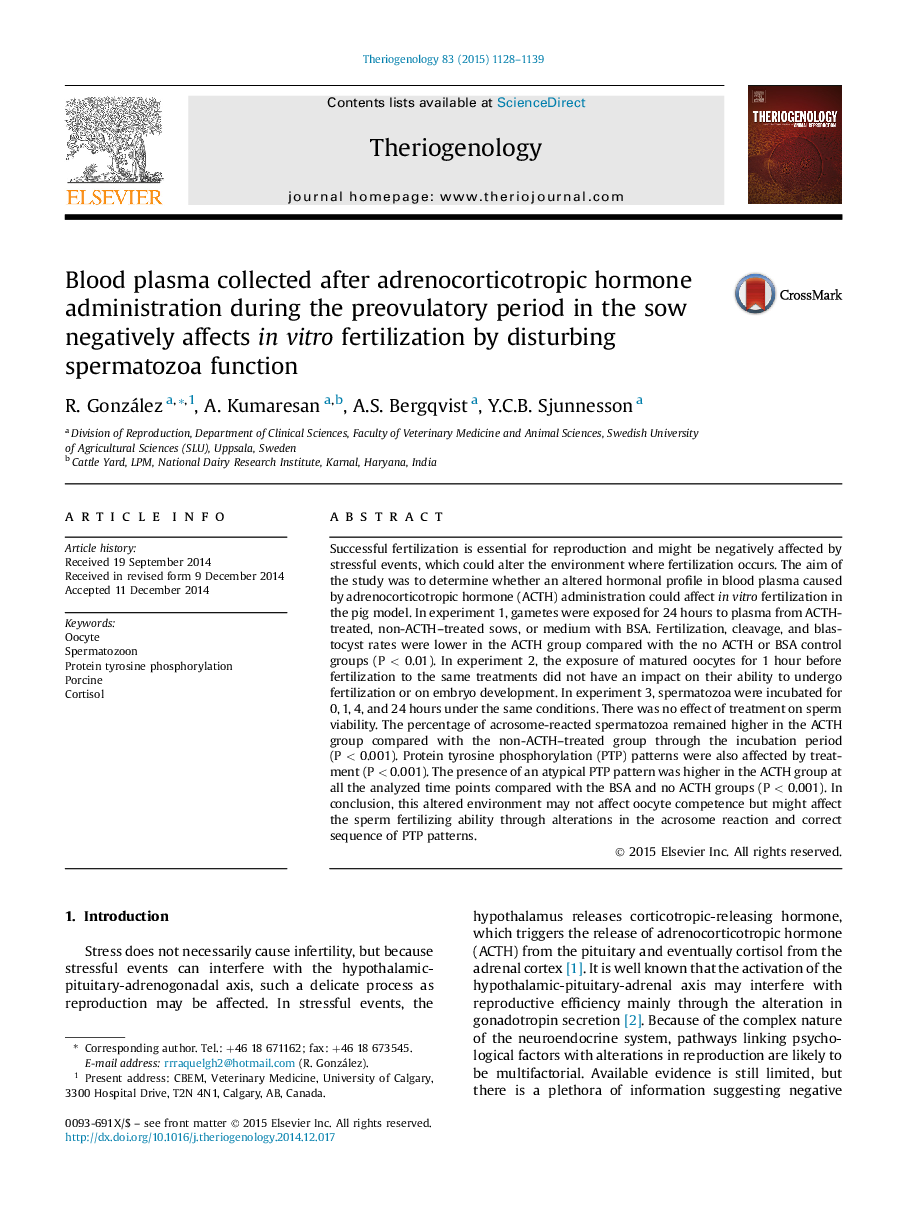| Article ID | Journal | Published Year | Pages | File Type |
|---|---|---|---|---|
| 2094984 | Theriogenology | 2015 | 12 Pages |
Successful fertilization is essential for reproduction and might be negatively affected by stressful events, which could alter the environment where fertilization occurs. The aim of the study was to determine whether an altered hormonal profile in blood plasma caused by adrenocorticotropic hormone (ACTH) administration could affect in vitro fertilization in the pig model. In experiment 1, gametes were exposed for 24 hours to plasma from ACTH-treated, non-ACTH–treated sows, or medium with BSA. Fertilization, cleavage, and blastocyst rates were lower in the ACTH group compared with the no ACTH or BSA control groups (P < 0.01). In experiment 2, the exposure of matured oocytes for 1 hour before fertilization to the same treatments did not have an impact on their ability to undergo fertilization or on embryo development. In experiment 3, spermatozoa were incubated for 0, 1, 4, and 24 hours under the same conditions. There was no effect of treatment on sperm viability. The percentage of acrosome-reacted spermatozoa remained higher in the ACTH group compared with the non-ACTH–treated group through the incubation period (P < 0.001). Protein tyrosine phosphorylation (PTP) patterns were also affected by treatment (P < 0.001). The presence of an atypical PTP pattern was higher in the ACTH group at all the analyzed time points compared with the BSA and no ACTH groups (P < 0.001). In conclusion, this altered environment may not affect oocyte competence but might affect the sperm fertilizing ability through alterations in the acrosome reaction and correct sequence of PTP patterns.
